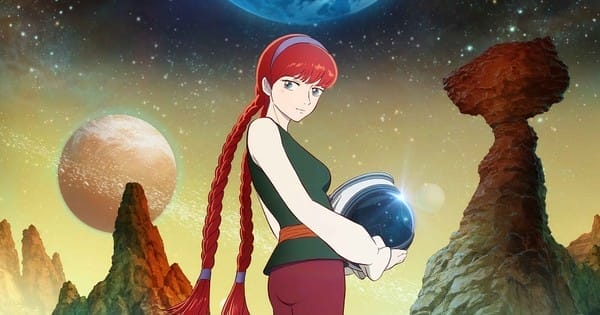
Phoenix: Eden17 Anime Collection Overview
Phoenix: Eden17 is an adaption of the sixth volume of Osamu Tezuka’s groundbreaking manga series Phoenix, which is regarded as a classic work by the man dubbed as “The God of Manga” due to his enduring effect on the genre that endures to this day.
Through a series of stories that alternate between humankind’s past and future, Phoenix explores the nature of humanity, with each iteration progressively moving closer to the present. Regretfully, Osamu worked on it intermittently for almost 40 years before to his passing, and it is still unfinished.
Phoenix: Eden17 is based on “Nostalgia,” one of the collection’s future stories, but it doesn’t mean that it’s an exact replica of that piece. Although many of the major events and most of the primary people remain the same, there are significant changes to the events and their motivations compared to the original.
Furthermore, neither the appearance nor the feel of the entire four-episode miniseries is reminiscent of an Osamu work. The visual style is completely different from Osamu’s, with the exception of minor details like Romi and Com’s faces. This isn’t always a terrible thing, though. The more realistic artwork in the anime is incredibly detailed and well executed. This, in turn, eliminates the more “cartoony” aspects of Osamu’s style and helps to anchor the plot in reality.
The work has a considerably less overt aspect to it, with a more nuanced exploration of the underlying idea rather than a direct declaration. But there’s no denying that theme is entirely Osamu’s and forms the core of the work.
At its core, Phoenix: Eden17 is essentially about greed. The source of all of Romi’s agony throughout her lengthy life has been her desire for more. She is driven from Earth by the greed of others, and she suffers as a result of her greed for herself, her child, and the civilization that eventually emerges in Eden 17. Every human character in the narrative is unwilling to be content with what they have and will stop at nothing to further their own self-serving agendas, no matter how much it hurts them or people around them.
The non-human characters—most notably the Moopy and Com—are on the opposite side of the narrative. For Romi and her child, the Moopy gives up 1300 years of her life, doing everything within its power to fulfill their wishes. Com, in the meantime, is content to fulfill Romi’s final wish, which is to return her to Earth—the place from which she was driven so many years ago.
Com, who plays the part of the innocent in the narrative, is more than just a selfless character; he is a man who is always asking “why” about humanity’s darker tendencies. He is an easy target for his own exploitation since he finds it hard to comprehend why anyone would want to take advantage of another person.
Ultimately, the story of Phoenix: Eden17 is not a pleasant one. Rather, it’s a tale about one of the darker aspects of human nature and the suffering it brings to both ourselves and other people. We run the risk of losing everything by giving in to it, including our planet. Ultimately, the message of Phoenix: Eden17—that we should strive to be better than we are—remains true, even though it diverges greatly from the plot Osamu originally penned.


